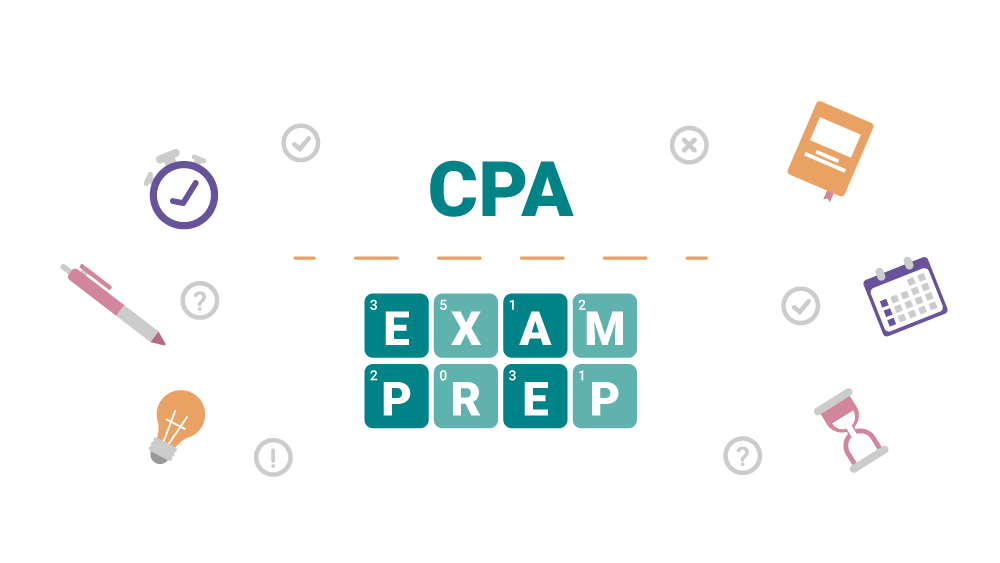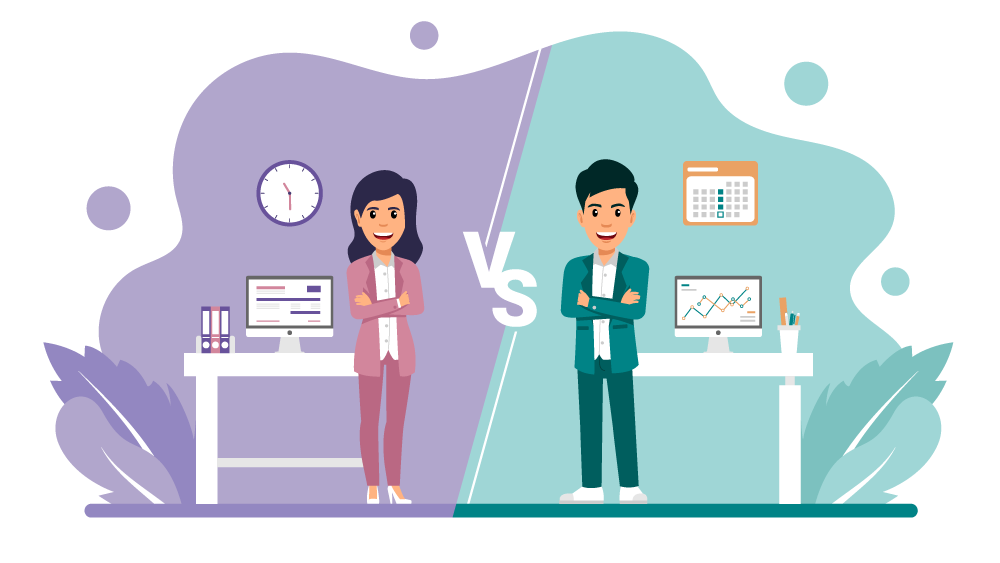While bookkeeping and accounting have similarities, they are not the same. If you want to go into an accounting or bookkeeping career, you should know the similarities and differences. It’s also important to understand the difference if you’re a business owner looking to hire an accountant or bookkeeper.
Before you make your decision, it’s important to know what both of these are. Sometimes, bookkeeping and accounting are used interchangeably. However, they are not the same thing. Let’s look at both a bit more in-depth.

What is Bookkeeping?
According to Business.org, bookkeeping is “the act of keeping financial records.” Often, this practice is referred to as “keeping the books”. When you become a bookkeeper, you will likely perform the following duties:
- Create a list of debits and credits for a business or employer
- Maintain the list of debits and credits
- Record all financial transactions for the business
- Create financial statements, such as income statements, balance sheets, and cash flow statements
If you want to go into this type of career, these are the duties you will likely take on. Those running a business can handle these tasks with bookkeeping software or can hire a bookkeeper to do it for them.
What is Accounting?
Accounting is the analysis of financial data to help a business make informed decisions about finances. The activities included in accounting are:
- Preparing and filing taxes
- Analyzing financial statements to figure out the right decisions for profitability in the future
- Providing recommendations based on financial data for the business operations
An accountant will perform many of these duties. Many businesses hire accountants to handle at least their tax filing.
Bookkeeping vs Accounting: The Key Differences
While book bookkeeping and accounting fall into the same financial category, they are very different. The process used is different. Bookkeeping is related mainly to identifying and recording financial transactions, while accounting has more to do with interpreting and communicating those financial transactions.
Bookkeeping is done first and at the beginning stages of accounting. Where bookkeeping ends, accounting begins. Often, management won’t make decisions based on bookkeeping but will be based on accounting.
The objective of bookkeeping is to record financial transactions. This is different from the objective of accounting. Accounting has the objective of figuring out the financial position of the business and how it relates to future financial decisions.
Required Education
If you plan to become a bookkeeper or an accountant, you will notice a pretty big difference in the education requirements. While you cannot become an accountant without a college degree, you can become a bookkeeper right out of high school. However, it’s common for bookkeepers to earn an associate’s degree.
Bookkeepers also tend to start working and go back to school to gain a degree in accounting, while working. They may do this through an online accounting or finance program.
Becoming an accountant will start with a bachelor’s degree. This is the first step toward becoming a certified public accountant (CPA). This certification will require you to pass a specific exam.
Before you can become a CPA, you will need to complete at least 150 postsecondary education hours, along with 30 hours of graduate work. It’s common for CPA candidates to earn a master’s degree.
Salary
Another big difference you will see between a bookkeeper and an accountant is the salary. According to Indeed.com, a bookkeeper will earn an average yearly salary of nearly $40K. The best employers will pay over $50K for an experienced bookkeeper, however. Salary.com puts the range of pay for bookkeepers at about $34K to $55K per year.
If you become an accountant, you will likely earn a starting salary close to $56K per year. Some of the best employers will pay significantly more with many paying above $90K per year for experienced accountants. The range of pay goes from about $51K to $107K per year.
Accountants earn more than bookkeepers and have a higher earning potential. This is mainly due to the higher level of education. It’s not uncommon for bookkeepers to become accountants to earn a higher salary.
Career Advancement
As a bookkeeper or accountant, you might be able to advance your career. If you’re looking for a good long-term career, both offer a good path to follow.
Bookkeepers don’t have the same upward mobility or potential for a higher salary as accountants. Often, bookkeeping is looked at as a starting point for a career in finance. You may become a bookkeeper and later become an accountant or financial advisor. More education and training will be necessary to make this change, however.
As an accountant, you can grow your career a bit easier. The payoff is higher, too. Accountants can also specialize in specific areas to earn more or become more valuable in the marketplace.
How Bookkeepers Become Accountants
Since it’s a very common career move, you should know how to become an accountant after becoming a bookkeeper. If you want to make this leap, you will need to have a bachelor’s degree. With a bachelor’s degree, you can go on to complete the necessary graduate credit hours before taking the CPA exam.
What type of Accounting Jobs are Most in Demand?
When you want to go into accounting, it’s smart to know which accounting careers are in demand. While you will likely become a CPA, that could lead to a variety of career options.
The highest demand accounting careers include:
- Internal auditors
- Senior tax accountants
- Comptrollers
- Accounting managers
- Financial managers
- Personal finance advisors
These careers may take some time to get into, but they are in demand right now, according to Northeastern University.
Bookkeeping is a great choice for an entry-level financial career. It can lead to a more advanced career with the right education and training. If you want to go into bookkeeping, you might end up going into accounting later on.
Understanding the differences between these two careers can help you to make the right decision. It can also help you, as a business owner, know which type of financial person you need to hire. Both bookkeeping and accounting are financial positions and very important for many businesses today.





